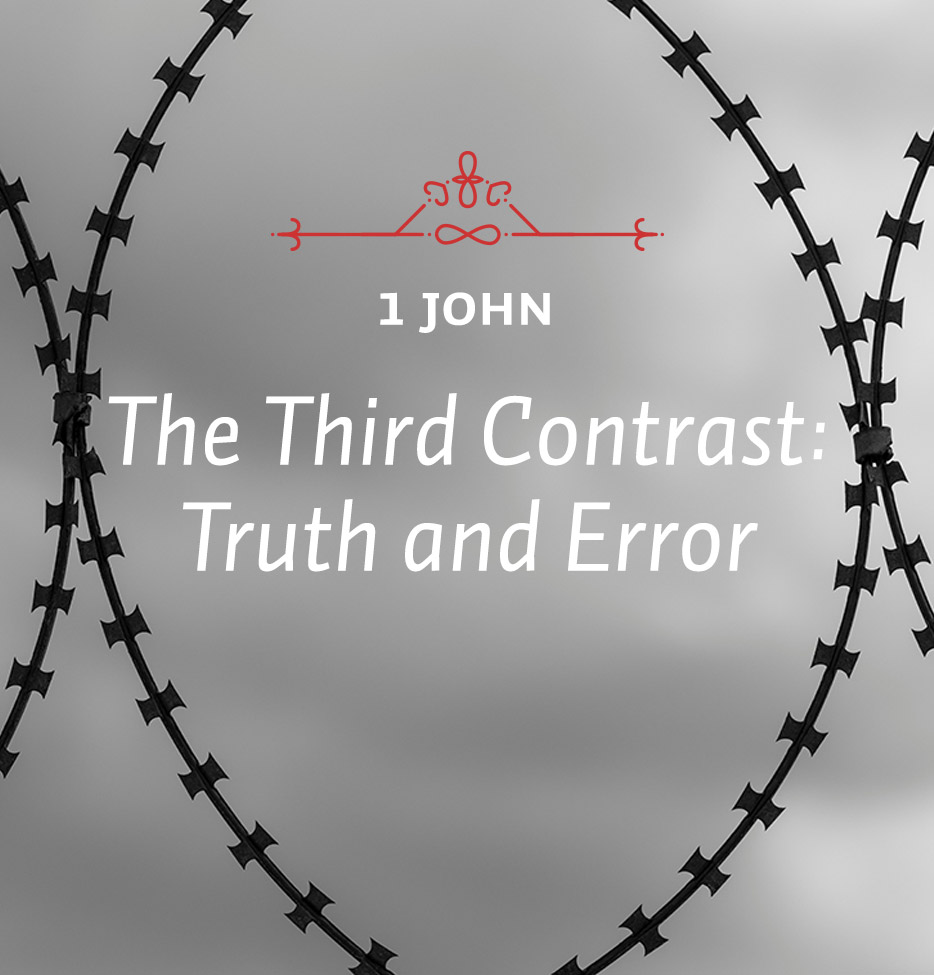In these verses John deals with this problem of the need to discern teaching in the church and, therefore, also with our own need to exercise such discernment. His reply has three parts. First, there is the command to test those who claim to be inspired. Second, there is a standard to be used in testing them. Third, there is an application of these ideas to the problem of distinguishing between true and merely professing Christians. In this last section John deals once more with the radical distinction between the church and the world and shows the relation of each to the apostolic doctrine.
The contrasts in this section are therefore between the Holy Spirit and false spirits, belief and unbelief, and in a summary way (v. 6) between truth and error.
John begins with the statement that there are false prophets as well as true prophets and with a command for Christians to distinguish between them. At the same time he indicates what the important point is in such distinguishing. It is not whether supernatural phenomena are present, for the devil can also appear to do miracles. It is a question of the source of the prophet’s inspiration. Is it of God? In that case, the prophet is a true prophet. If it is not of God, then he is not to be believed or followed, however great his wisdom or however striking his activity.
When John says that many false prophets are gone out into the world he is not necessarily thinking of his day alone. Indeed he would know that there have always been false prophets and that God’s people have always had the task of distinguishing between those who are of God and those who speak either of themselves or by the power of the devil. The Old Testament contains a magnificent example in the case of Micaiah and the prophets of King Ahab, recorded in 1 Kings 22. King Ahab of Israel had been trying to persuade King Jehoshaphat of Judah to join him in battle against Syria in order to annex a piece of real estate known as Ramoth-gilead, but Jehoshaphat was skeptical. He wanted to ask whether the venture was blessed by the Lord by inquiring of a prophet. When he expressed this desire Ahab responded by calling together four hundred of the court prophets, who then testified: “Go up; for the LORD shall deliver it into the hand of the king” (v. 6).
At this point Ahab was pleased; but Jehoshaphat was dissatisfied, for he sensed that these men were merely paid mouthpieces kept by Ahab for propaganda purposes. Jehoshaphat asked, “Is there not here a prophet of the LORD besides, that we might inquire of him?” (v. 7). Ahab admitted that there was a man named Micaiah, but he said that he hated him because he never prophesied anything good about Ahab. Ahab did not want to hear Micaiah. Nevertheless, at Jehoshaphat’s insistence this unpopular prophet was called.
At first the prophet ridiculed the kings, saying word for word exactly what the false prophets had prophesied. But everyone understood what he was doing, and Ahab finally called, “How many times shall I adjure thee that thou tell me nothing but that which is true in the name of the LORD?” (v. 16).






